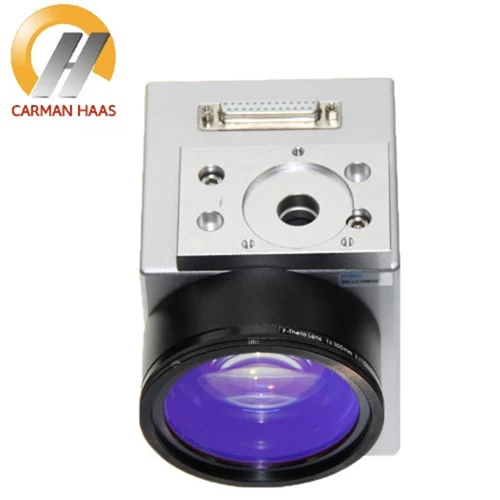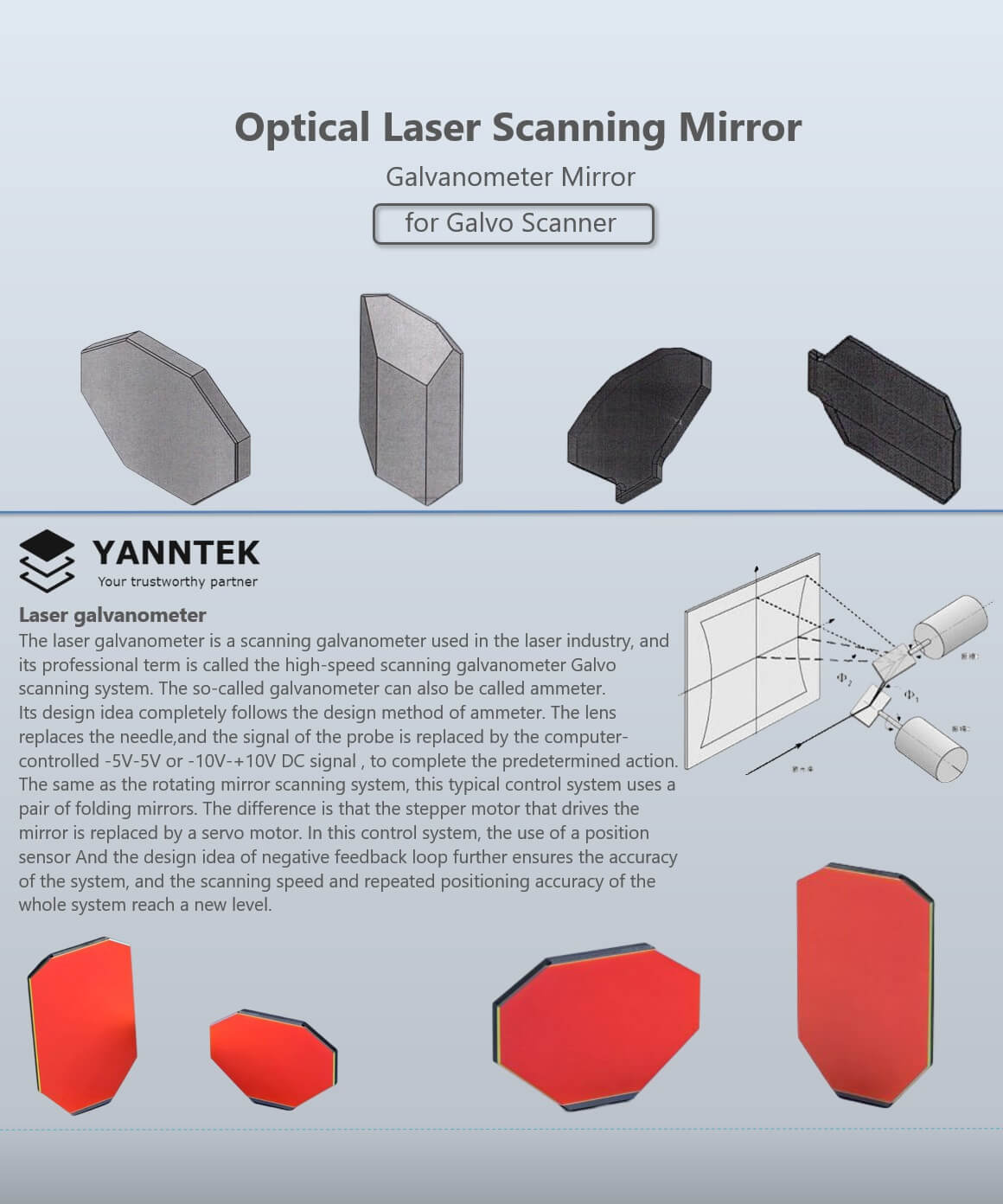Exactly How a Galvanometer Scanner Enhances Performance in Laser Scanning Technologies
The combination of galvanometer scanners in laser scanning technologies represents an essential development in precision engineering. By assisting in precise and quick modifications of laser light beam instructions, these devices considerably enhance functional efficiency throughout various applications, from clinical imaging to industrial inscription. The underlying electro-magnetic systems, coupled with sophisticated feedback systems, make certain real-time control and improved precision. As markets increasingly demand higher efficiency requirements, the concern occurs: what future developments might additionally elevate the capabilities of galvanometer scanners in this evolving landscape?
Understanding Galvanometer Scanners
A galvanometer scanner is an innovative gadget that leverages electromagnetic principles to achieve precise angular motion of mirrors or various other reflective surfaces. These scanners operate via the communication of an electrical current and an electromagnetic field, making it possible for exact and fast positioning. This technology is important in applications needing high-speed scanning, such as laser engraving, optical communication, and medical imaging.

Galvanometer scanners are commonly characterized by their quick reaction times and high angular resolution, making them perfect for applications that require rapid motions and precise placing. Their dependability and efficiency make them an important component in contemporary laser scanning technologies, adding dramatically to advancements in numerous areas, including manufacturing, health care, and telecommunications.
Device of Laser Beam Of Light Control

The control device counts on closed-loop feedback systems that continuously keep track of the beam's position. The signals from optical sensors offer real-time information to the control system, allowing for quick adjustments to preserve accuracy. This is crucial in applications where even slight variances can jeopardize the quality of the scan or inscribing.
In addition, the galvanometer's feedback time is vital; high-speed motors make it possible for speedy activities, ensuring that the laser beam can rapidly map intricate patterns or do elaborate procedures. The assimilation of electronic signal processing additionally boosts the responsiveness and precision of the galvanometer scanner. Generally, the mechanism of laser beam control through galvanometer scanners exemplifies the combination of advanced engineering and modern technology, yielding high-performance outcomes in laser scanning applications.
Benefits of Boosted Precision
Boosted accuracy in laser scanning modern technologies supplies considerable benefits across different applications, from industrial manufacturing to medical procedures. The assimilation of galvanometer scanners permits for very precise light beam positioning, which is crucial for tasks requiring careful detail. This enhanced precision makes check my source certain that the laser can target specific areas with marginal variance, causing superior quality end results.
In commercial contexts, specific laser scanning causes boosted product consistency and minimized material waste. Parts made with high precision are much less likely to require rework, therefore improving performance and lowering operational expenses. In a similar way, in medical applications, the precision of laser treatments can substantially influence patient results. In laser surgical treatment, exact targeting lessens damage to surrounding tissues, leading to quicker healing times and fewer issues.
Additionally, improved accuracy helps with advanced applications such as 3D imaging and microfabrication, where also minute mistakes can lead to significant errors. By supplying reputable and repeatable laser positioning, galvanometer scanners add to the total efficiency and efficiency of laser systems. In summary, the advantages of boosted accuracy not only boost functional performance but likewise elevate the requirements of top quality and security in various industries.
Applications in Various Industries
The flexibility of galvanometer scanners in laser scanning modern technologies extends across several industries, each gaining from the accuracy they provide. In the medical field, these scanners are pivotal in applications such as laser surgical treatment and imaging, enabling extremely accurate targeting of tissues while reducing damages to surrounding areas - galvanometer scanner. Their rapid reaction and great resolution are vital in creating top notch outcomes
In the manufacturing field, galvanometer scanners enhance processes like laser inscription and cutting. Their capacity to quickly guide laser light beams onto surface areas makes it possible for reliable assembly line, improving rate and accuracy in creating complex layouts or elements.
The automobile sector likewise takes advantage of galvanometer technology for top quality control and evaluations (galvanometer scanner). By employing high-speed scanning, producers can spot issues in assemblies or materials, making certain that items fulfill stringent criteria
Moreover, in the amusement industry, galvanometer scanners are used in laser light programs and display screens, supplying vibrant aesthetic experiences with precise control over laser you can look here motions.
Future Patterns in Laser Scanning
Emerging modern technologies are positioned to transform the landscape of laser scanning, with galvanometer scanners at the center of this transformation. As markets significantly require precision and performance, the advancement of galvanometer modern technology will certainly drive considerable innovations in laser scanning applications.
Future fads indicate an expanding combination of man-made intelligence and artificial intelligence algorithms, which will certainly improve data processing capacities and automate decision-making in real-time. This harmony will enable a lot more innovative analysis of scanned data, resulting in boosted accuracy in applications such as 3D modeling and autonomous navigation.
In addition, the miniaturization of parts and the development of innovative materials will certainly add to lighter, extra mobile laser scanning systems. This portability will certainly increase the reach of laser scanning technologies right into formerly inaccessible settings, such as remote terrain and intricate architectural spaces.
The surge of augmented reality (AR) and virtual truth (VR) applications will additionally shape the future of laser scanning. By combining galvanometer scanners with AR and VR, individuals will gain from immersive experiences that boost visualization and job preparation.
Verdict
To conclude, galvanometer scanners play an essential function in optimizing laser scanning innovations through their precise control of beam instructions and quick angular adjustments. The integration of sophisticated feedback systems and optical sensing units significantly boosts functional speed and precision, bring about enhanced outcomes in applications such as laser inscription and medical imaging. As markets significantly take on these modern technologies, the continuous improvements in galvanometer scanner layouts are expected to further boost efficiency standards and broaden application opportunities.
The integration of galvanometer scanners in laser scanning modern technologies stands for an essential advancement in accuracy engineering. Generally, the system of laser light beam control with galvanometer scanners exemplifies the fusion of advanced design and technology, producing high-performance end results in laser scanning applications.
By providing reputable and repeatable laser positioning, galvanometer scanners contribute to the total efficiency and Homepage efficiency of laser systems.The convenience of galvanometer scanners in laser scanning modern technologies expands throughout numerous markets, each benefiting from the precision they provide.In verdict, galvanometer scanners play a crucial role in maximizing laser scanning modern technologies with their accurate control of light beam instructions and fast angular adjustments.